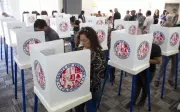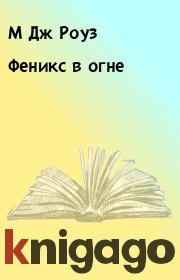Encyclopedia Britannica - Democracy
 | Название: | Democracy |
Автор: | Encyclopedia Britannica | |
Жанр: | Энциклопедии | |
Изадано в серии: | неизвестно | |
Издательство: | неизвестно | |
Год издания: | 2023 | |
ISBN: | неизвестно | |
Отзывы: | Комментировать | |
Рейтинг: | ||
Поделись книгой с друзьями! Помощь сайту: донат на оплату сервера | ||
Краткое содержание книги "Democracy"
Democracy, literally, rule by the people. The term is derived from the Greek dēmokratiā, which was coined from dēmos (“people”) and kratos (“rule”) in the middle of the 5th century bce to denote the political systems then existing in some Greek city-states, notably Athens. Fundamental questions
The etymological origins of the term democracy hint at a number of urgent problems that go far beyond semantic issues. If a government of or by the people—a “popular” government—is to be established, at least five fundamental questions must be confronted at the outset, and two more are almost certain to be posed if the democracy continues to exist for long.
Читаем онлайн "Democracy". Главная страница.
- 1
- 2
- 3
- . . .
- последняя (14) »
Encyclopaedia Britannica Online
Democracy
Table of Contents
Introduction
Fundamental questions
Democratic institutions
The theory of democracy
Problems and challenges
Democracy, literally, rule by the people. The term is derived from the Greek dēmokratiā, which was coined from dēmos (“people”) and kratos (“rule”) in the middle of the 5th century bce to denote the political systems then existing in some Greek city-states, notably Athens. Fundamental questions
The etymological origins of the term democracy hint at a number of urgent problems that go far beyond semantic issues. If a government of or by the people—a “popular” government—is to be established, at least five fundamental questions must be confronted at the outset, and two more are almost certain to be posed if the democracy continues to exist for long.
(1) What is the appropriate unit or association within which a democratic government should be established? A town or city? A country? A business corporation? A university? An international organization? All of these?
(2) Given an appropriate association—a city, for example—who among its members should enjoy full citizenship? Which persons, in other words, should constitute the dēmos? Is every member of the association entitled to participate in governing it? Assuming that children should not be allowed to participate (as most adults would agree), should the dēmos include all adults? If it includes only a subset of the adult population, how small can the subset be before the association ceases to be a democracy and becomes something else, such as an aristocracy (government by the best, aristos) or an oligarchy (government by the few, oligos)?
(3) Assuming a proper association and a proper dēmos, how are citizens to govern? What political organizations or institutions will they need? Will these institutions differ between different kinds of associations—for example, a small town and a large country?
(4) When citizens are divided on an issue, as they often will be, whose views should prevail, and in what circumstances? Should a majority always prevail, or should minorities sometimes be empowered to block or overcome majority rule?
(5) If a majority is ordinarily to prevail, what is to constitute a proper majority? A majority of all citizens? A majority of voters? Should a proper majority comprise not individual citizens but certain groups or associations of citizens, such as hereditary groups or territorial associations?
(6) The preceding questions presuppose an adequate answer to a sixth and even more important question: Why should “the people” rule? Is democracy really better than aristocracy or monarchy? Perhaps, as Plato argues in the Republic, the best government would be led by a minority of the most highly qualified persons—an aristocracy of “philosopher-kings.” What reasons could be given to show that Plato’s view is wrong?
(7) No association could maintain a democratic government for very long if a majority of the dēmos—or a majority of the government—believed that some other form of government were better. Thus, a minimum condition for the continued existence of a democracy is that a substantial proportion of both the dēmos and the leadership believes that popular government is better than any feasible alternative. What conditions, in addition to this one, favour the continued existence of democracy? What conditions are harmful to it? Why have some democracies managed to endure, even through periods of severe crisis, while so many others have collapsed? Democratic institutions
Since the time of the ancient Greeks, both the theory and the practice of democracy have undergone profound changes, many of which have concerned the prevailing answers to questions 1 through 3 above. Thus, for thousands of years the kind of association in which democracy was practiced, the tribe or the city-state, was small enough to be suitable for some form of democracy by assembly, or “direct democracy.” Much later, beginning in the 18th century, as the typical association became the nation-state or country, direct democracy gave way to representative democracy—a transformation so sweeping that, from the perspective of a citizen of ancient Athens, the governments of gigantic associations such as France or the United States might not have appeared democratic at all. This change in turn entailed a new answer to question 3: Representative democracy would require a set of political institutions radically different from those of all earlier democracies.
Another important change has concerned the prevailing answers to question 2. Until fairly recently, most democratic associations limited the right to participate in government to a minority of the adult population—indeed, sometimes to a very small minority. Beginning in the 20th century, this right was extended to nearly all adults. Accordingly, a contemporary democrat could reasonably argue that Athens, because it excluded so many adults from the dēmos, was not really a democracy—even though the term democracy was invented and first applied in Athens.
Despite these and other important changes, it is possible to identify a considerable number of early political systems that involved some form of “rule by the people,” even if they were not fully democratic by contemporary standards. Prehistoric forms of democracy
Although it is tempting to assume that democracy was created in one particular place and time—most often identified as Greece about the year 500 bce—evidence suggests that democratic government, in a broad sense, existed in several areas of the world well before the turn of the 5th century.
It is plausible to assume that democracy in one form or another arises naturally in any well-bounded group, such as a tribe, if the group is sufficiently independent of control by outsiders to permit members to run their own affairs and if a substantial number of members, such as tribal elders, consider themselves about equally qualified to participate in decisions about matters of concern to the group as a whole. This assumption has been supported by studies of nonliterate tribal societies, which suggest that democratic government existed among many tribal groups during the thousands of years when human beings survived by hunting and gathering. To these early humans, democracy, such as it was practiced, might well have seemed the most “natural” political system.
When the lengthy period of hunting and gathering came to an end and humans began to settle in fixed communities, primarily for agriculture and trade, the conditions that favour popular participation in government seem to have become rare. Greater inequalities in wealth and military power between communities, together with a marked increase in the typical community’s size and scale, encouraged the spread of hierarchical and authoritarian forms of social organization. As a result, popular governments among settled peoples vanished, to be replaced for thousands of years by governments based on monarchy, despotism,
--">- 1
- 2
- 3
- . . .
- последняя (14) »
Книги схожие с «Democracy» по жанру, серии, автору или названию:
 |
| Елена Геннадьевна Васнецова - Полная энциклопедия домашнего хозяйства Жанр: Современные российские издания Год издания: 2012 |
 |
| Павел Югринов - Малая энциклопедия холодного оружия Жанр: Военная техника и вооружение Год издания: 2010 |
 |
| Валерий Григорьевич Гитин - Энциклопедия шокирующих истин Жанр: Энциклопедии Год издания: 2004 |



